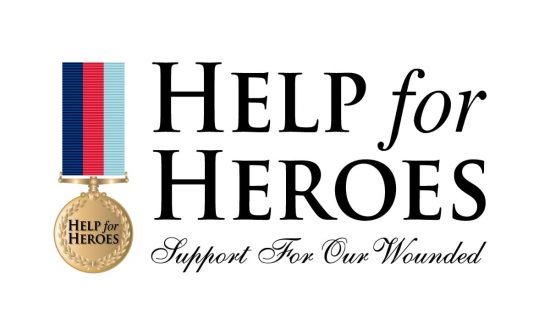Veterans offered a new career in screen
Military veterans are to be offered the chance to make a career change to working in the film industry.
Creative Skillset, the skills body for UK screen, is working with the Armed Forces charity, Help for Heroes, to offer service personnel and veterans that have been affected by their military service the opportunity to forge a new career in film and television.
A pilot programme will be launched at the Help for Heroes Recovery Centre, Tedworth House, in Wiltshire this month with an introduction to how skills learned in the Armed Forces could be translated into behind-the-camera roles in screen.
The programme is the brainchild of Gareth Ellis-Unwin, the Oscar-winning producer of The King’s Speech, in his new role as Head of Film at Creative Skillset. It is supported by National Lottery funds awarded to Creative Skillset from the British Film Institute to deliver its Future Film Skills programme. The introduction will be delivered by the Guild of British Camera Technicians.
The initiative builds on connections made when Gareth was producing the 2014 film, Kajaki: The True Story, which told the story of a rescue mission to save soldiers injured by explosions in an unmarked minefield in Afghanistan in 2006. It led to Gareth becoming a Help for Heroes brand ambassador.
He met a number of those involved in the operation and says: “They were a very capable, bright group of young men, and whilst some were horribly injured, many still had the physical strength to commit to manual work.
“It struck me that anyone that could keep an armoured vehicle working in the desert could probably cope with the physical, technical and logistical demands of working in film. I believe that opening up the world of film to people who might not otherwise have thought it possible could be an enormously powerful way to signal what these men and women are capable of doing while addressing genuine skills shortages in the industry.”
Steve Sinclair-Day, Career Recovery Manager at Help for Heroes, says: “I’m thrilled that Help for Heroes are involved in a pilot project to explore and share routes into the film and television industry.
“We are very grateful for the support of Creative Skillset and the Guild of Camera Technicians in making this happen. It’s fantastic to get real practical advice and guidance from leaders in their field, who recognise the transferable skills that veterans can offer.”
A one-day Introduction to the film and television industry will take place at Tedworth House on Tuesday 25 September and then again at the Help for Heroes Recovery Centre in Catterick, Yorkshire, on Thursday 4 October. The aim of each day is to provide services personnel with an overview of the industry and a practical explanation of roles where their skills could be used in film and television.
Those interested in taking training further will be then interviewed for a place on Creative Skillset’s flagship placement programme, Trainee Finder, which matches trainees with films and prestige television dramas.
One of the roles Gareth Ellis-Unwin thought might be suitable for veterans was working as a grip – key technical workers on a film set, responsible for the way in which a camera is supported, whether that be a crane, a tripod or through equipment such as a Steadicam.
Gareth discussed the idea with the grips branch of the union BECTU who agreed to back the initiative.
Keith Mead, Vice Chair of BECTU’s Certified Grips Branch, says: “We are always trying to find and bring on new people who want to do the job. Offering opportunities to people who have served in the forces is a great cause.
“Grips work in conjunction with a lot of people in film and television to make ideas work. A big part of it is logistics. You have to be able to think quickly which people who have trained in the military can do so that’s a good start. I will be one of the tutors at the introductory days which means I will be on hand to discuss this with anyone interested in becoming a mature trainee grip.”
Deanne Edwards, of the Guild of British Camera Technicians, adds: “What’s great about all this is that the introductory days will be truly an industry-wide initiative with a variety of experts sharing their considerable knowledge with others. What we all like about the course is that the soldiers will be taken on a journey of how films are made so that they can see how very important their transferable skills are to this industry.
“It will also help them decide whether gripping is for them or whether they would like to explore other specialist roles such as working in the art department or working in production safety. It will be a very busy but fun day learning new stuff.”
There are roles such as medics, drivers and cooks that have their direct equivalent in film and television as well as a number of jobs in the military involving skills that could be transferred.
To give or get support from Help for Heroes please visit www.helpforheroes.org.uk










